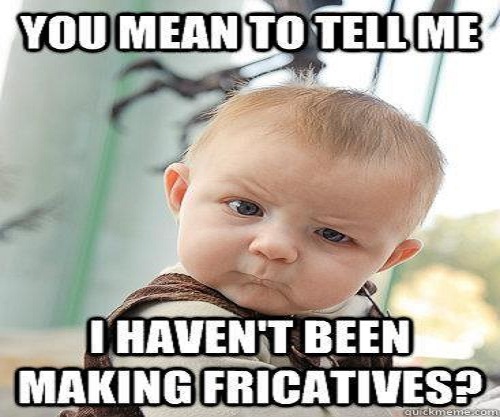What is Speech Therapy and What Does a Speech Therapist Do?
For the uninitiated, “speech therapist” might conjure up images of a clinician patiently trying to correct a stutter or a lisp. And indeed, speech therapists do treat these issues with a variety of tools – from exercises with Speech Buddies to audio feedback with a tape recorder. But speech therapy is a very broad field, and speech-language pathologists (SLPs) can help your child with everything from pitch regulation to complete sentence formation. So today, in our fourth and final installment of our introductory guide to speech therapy, we’ll answer a common question, “Just what the heck does a speech therapist do all day?”
Evaluation & Diagnosis
Before a speech therapist can treat your child, she must evaluate him. During an evaluation, the speech therapist will ask you some questions about your child and his speech and language issues. It would also be helpful for her to see some of your child’s schoolwork, if available. She may also ask about your child’s medical history, including the results from his hearing screening when he was an infant and whether he has a history of ear infections. (Even after the initial evaluation, it’s important for parents to collaborate closely with the SLP to ensure the child’s success.)
The speech therapist will also evaluate your child’s communication abilities in various situations by asking him to complete simple tasks and play games. She will use her observations to determine an accurate diagnosis for your child. Speech therapists also write their findings in a formal report following the evaluation. The report will include recommendations for speech therapy (such as how often the child should participate in speech therapy sessions). She will discuss speech therapy goals with you, which might include objectives such as, “Jonas will begin using simple, complete sentences.”
Treatment
Of course, in addition to evaluating new patients and meeting with parents, speech therapists spend much of their time in treatment sessions. These treatment sessions might take place in the SLP’s private clinic, a hospital, a school, or even the patient’s own home.
A speech therapist will tailor the treatment session to the child’s unique needs. She might work on vocabulary development with one child, and on making eye contact with another child. Many children need help with a range of issues.
A speech therapist will also use a variety of tools during a treatment session, depending on the child’s needs and interests. Children with articulation disorders can benefit from working with Speech Buddies. These tools teach proper tongue placement within the mouth to produce the desired sound. Speech therapists also often use the child’s own favorite toys or games to keep the youngster engaged in the lesson. For example, if Nikki loves animals, the speech therapist might engage her with zoo toys and encourage Nikki to make the sounds that the animals make.
Other Considerations
When speech therapists aren’t evaluating, diagnosing, and treating speech disorders, they must often handle other aspects of the field. They might participate on an Individualized Education Program (IEP) team, collaborate with teachers on best practices in classrooms, counsel family members on at-home speech therapy techniques, and advise the child’s parents about his progress. And of course, there’s always paperwork. Lots and lots of paperwork, as anyone who has dealt with the special education system can attest to.




